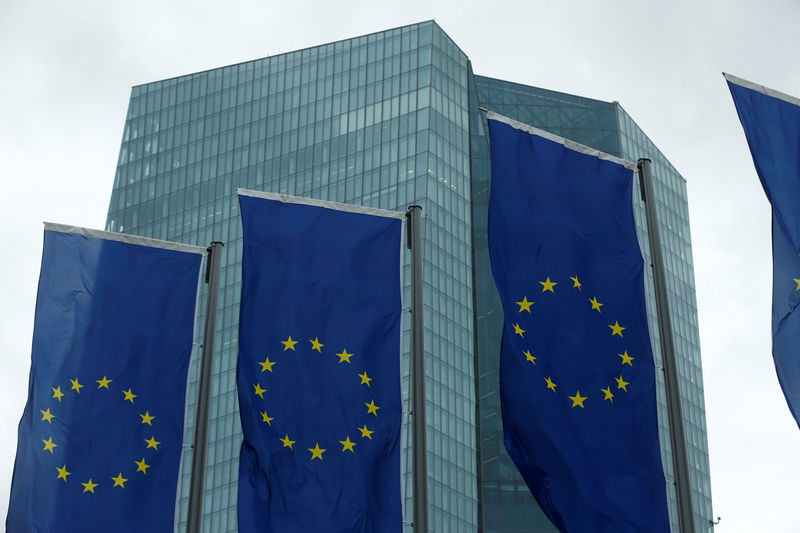(Bloomberg) -- European Union leaders may have sought to balance political, national and geographic interests when choosing the bloc’s new leadership, but ex-communist nations both inside and outside of its borders look to have ended up with the short end of the bargain.
While the EU’s biggest eastern members helped torpedo German Chancellor Angela Merkel’s plan and celebrated the proposal of French President Emmanuel Macron winning approval, the picks for three tops jobs create the risk of conflict and disappointment for governments stretching from Poland to Kosovo.
The agreement left the region with no representative in a top position. The nomination of Ursula von der Leyen to lead the executive Commission and Belgian Prime Minister Charles Michel as European Council president -- replacing Poland’s Donald Tusk -- gives positions of power to two staunch critics of the erosion of democratic values at a time when Poland, Hungary and the Czech Republic are clashing with Brussels over whether they’re upholding the rule of law.
“Eastern Europe, by not getting any of the main posts, is being punished for its outrageous behavior,“ Zarko Puhovski, political science professor at the University of Zagreb, said Wednesday. “In the next period, eastern Europe will be in the bloc’s second league, including even those eastern countries that have behaved well.”
There was further bad news for the six south-eastern European states seeking to join the world’s biggest trading bloc. Albania, Serbia, Kosovo, North Macedonia, Montenegro and Bosnia-Herzegovina have long expressed frustration at the slow progress toward membership. Any momentum might stall further after Macron said Monday that there would be no further enlargement unless a “deep reform” of the EU happens first.
The French president’s comment foreshadows a gloomy event in Poland this week. Balkan leaders are expected to meet Merkel, and possibly Macron, for an annual summit that starts Thursday.
Macron was speaking from a position of power, after objections from the EU’s eastern members helped scupper Merkel’s plan for the commission to be led by Frans Timmermans, a Dutch Socialist who has led the effort to sanction countries for undermining democratic standards.
‘Growing Strength’
The governments in Warsaw and especially Budapest were jubilant in the immediate aftermath of the deal. The outcome “demonstrated our growing strength and influence,” tweeted Zoltan Kovacs, a spokesman for the Hungarian government.
For Hungary, the leader of the illiberal camp, and Poland, the largest eastern EU state, Von der Leyen isn’t necessarily better. For a start, her appointment hands more power to Germany, which they say already has too much sway.
She also triggered outrage in Warsaw in 2017 for backing anti-government protesters that denounced efforts to overhaul the courts and other moves they say move the nation toward autocracy.
“It’s a rather bad twist of things for” Poland and Hungary said Marcin Zaborowski, a senior associate at Visegrad Insight, a think-tank. “Von der Leyen has been standing firm on the side of the rule of law.”
Michel, who’s set to lead the European Council, has also criticized the erosion of democratic checks and balances in the EU’s eastern members. Last year, he proposed establishing a peer review mechanism on the rule of law, in which EU members would “submit themselves to regular scrutiny by other member states,” an idea Poland and Hungary reject.
“We are committed to democracy and the rule of law at all costs,” Michel said last year.
The nominees are also unlikely to bring any sudden breakthroughs in the molasses-slow pace of bringing more members into the bloc. Outgoing commission President Jean-Claude Juncker warned last year that foot-dragging over enlargement raised the risk reigniting hostilities at the site of the continent’s bloodiest conflict since World War II.
The EU pledged a year ago to intensify engagement and potentially start entry talks with Albania and North Macedonia, but the deadline passed last month without result. The earliest date for any country to join -- with Montenegro the most advanced -- is 2025.
There nomination of Spanish Foreign Minister Josep Borrell as the bloc’s foreign policy chief may also complicate negotiations.
Borrell is a fierce opponent of separatist movements and his country doesn’t recognize the independence of Kosovo. The Balkan nation is seeking candidate status to start entry talks, for which it needs to improve ties with Serbia. Brussels-mediated negotiations to end their standoff stalled last year.
“For Borrell, coming from a country that doesn’t recognize Kosovo, it’ll be very hard to lead the Serbia-Kosovo dialog,” Vessela Cherneva, deputy director at the European Council on Foreign Relations think-tank.
That may let rival global powers, including Russia, China and Turkey, steal the march in the struggle for influence in Europe’s most volatile region. It will also reduce membership aspirant’s incentives to tackle the economic, political and social reforms demanded by the EU for entry.
“The EU’s leverage is already low and most governments are just pretending to reform,” said Florian Bieber, director of the Center for South East European Studies at the University of Graz.
